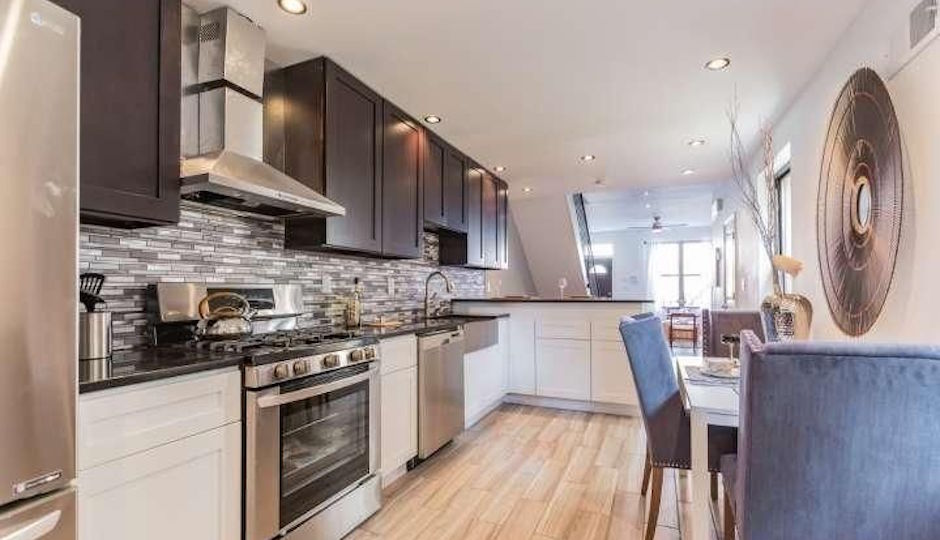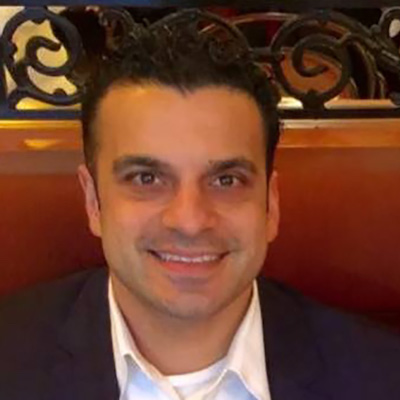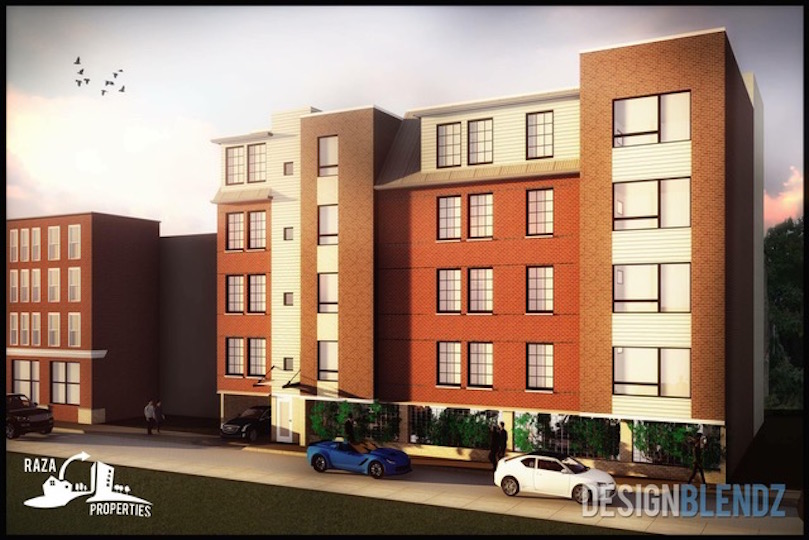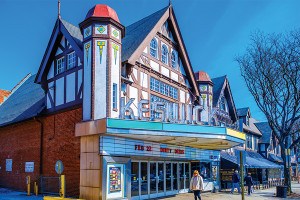Who’s Building Philly: Rahil Raza
By focusing on keeping costs low and cooperating with neighbors, the Temple-educated developer is building high-quality homes within reach of more of Philly's middle class.

A completed Raza Properties home at 2824 W. Master St. in Brewerytown, currently on the market. | TREND image via Raza Properties
“Workforce housing” is one of the buzzwords du jour in the local development lexicon. Elected officials and builders alike see it as key to shoring up lower-income neighborhoods and ensuring that socioeconomic diversity survives in gentrifying ones.
Rahil Raza, founder and CEO of Raza Properties, grew up in a working-class family and sees his mission as meeting the need for good, affordable housing for Philly’s working class. To date, he has built 47 homes in three neighborhoods with sizable working-class (and lower) populations, Point Breeze, Sharswood and Brewerytown, and he has plans to build even more homes in the latter two neighborhoods.

Rahil Raza
Raza, a Temple graduate, did not start out intending to go into real estate development. “I lived in the city and studied pharmacy” at Temple, he said. “But I’ve always loved building and creating jobs. I wanted to provide housing for the working class.
“I feel that oftentimes the working class is overlooked,” he continued. “It’s not really [the target of] the affordable-housing initiative the city has, or the workforce housing initiative.”
Almost all of the homes Raza has built to date would qualify as First-Time Finds. They have two to four bedrooms and list for anywhere from $200,000 to $350,000. On the inside, they have all the features modern buyers expect, like open-plan main floors, kitchens with stainless steel appliances and quartz countertops, modern tile bathrooms and powder rooms, hardwood floors and recessed lighting.
Raza can sell these homes for less because he pays attention to costs along the way. Many of his projects so far have focused on rebuilding existing homes instead of building new from scratch, which reduces overall costs, and his construction manager, Andre Khimitch, owns AK ProBuild, a company that shares his vision of producing affordable housing for working people. “They’ve done a lot of new construction, and they do all of mine,” he said.
After starting out in Point Breeze, Raza has shifted his focus northward to Francisville and Sharswood, neighborhoods where he sees greater potential for successful development. “Sharswood has a considerable amount of public and private investment going into the area,” he said.
That’s also true for Point Breeze, but Raza said the climate for building down there was much different. “It’s a really hostile environment, not just the neighbors but the developers and everyone else there,” he said. “One of the things that I’m most proud of is that I work with so many diverse people of all backgrounds. In Point Breeze, that was not [possible].
“In Sharswood, there’s much better reception from the neighbors, there’s much better reception from the community. They understand where we’re going, and we enjoy working with them. We don’t want to push people out.”
That probably won’t be a danger in Sharswood for some time to come, as the neighborhood has a large amount of vacant land and buildings. The Philadelphia Housing Authority’s plans for much of that land have sparked controversy among some residents, but Raza had good things to say about most of what it says it wants to do: “It’s a really good plan; it’s not out of left field. The designs and the facades on the homes are pretty nice. I’m not sure I like the retail space; it’s not cohesive with the urban environment.
“But there’s some workforce housing, some low-income housing, and some market-rate. That’s definitely the way to go.”
Raza said that he met with representatives of Beech Community Services, a social service provider based just outside Sharswood, to discuss his building plans and that they gave him a positive reception.

1727-37 Ingersoll St. | Rendering: DesignBlendz via Raza Properties
Some of the projects he has planned in the area actually lie outside Sharswood’s boundaries, like 1727-37 Ingersoll St., where he plans to build 20 brand-new housing units with off-street parking. He plans to provide more parking than existing zoning allows, which will require a variance, but, he says, “I know only 30 to 40 percent of people in the neighborhood have autos, but if I plan for [the new buyers] ahead of time, they can park off-street.”
What Raza envisions here is a situation where buyers reverse-commute to jobs in dispersed locations. “People would be willing to live in the city and commute to other places, and I think that will take off when they address the wage-tax issue,” he said. “I think more people will want to move into the city. It’s the cool thing to do. I grew up in the suburbs and moved into the city myself.”
The development sounds a lot like the type of housing Council President Darrell Clarke, whose district includes the area, is touting as what the neighborhood should have. But it’s not, Raza said: It’s denser, and he offered Clarke some friendly advice.
“I don’t think the neighbors want what the councilman is pushing,” he said. “Lots in North Philadelphia are a lot bigger — two to three times bigger than lots in Point Breeze. His agenda is to rezone these lots to RSA-5,” the densest category for single-family rowhomes; most of the lots are now zoned for multifamily structures or commercial mixed-use.
“My purpose is to build for middle-class people, and I can only do that if I’m allowed to have density,” he went on. “If I can get [low-rise multifamily] zoning, I can keep the costs down and build high-quality housing to sell to middle-class individuals. To build single-family houses on that land is not only a waste of land, but the people who build ‘workforce housing’ in the city would waste a lot of money and cut a lot of corners.
“I want to do things the right way. I understand the city’s intention. They feel a need for middle-income housing and I want to provide it for them. I don’t think changing the zoning is the right way, and that [city officials] should listen to the neighbors and the developers.”
Follow Sandy Smith on Twitter.


